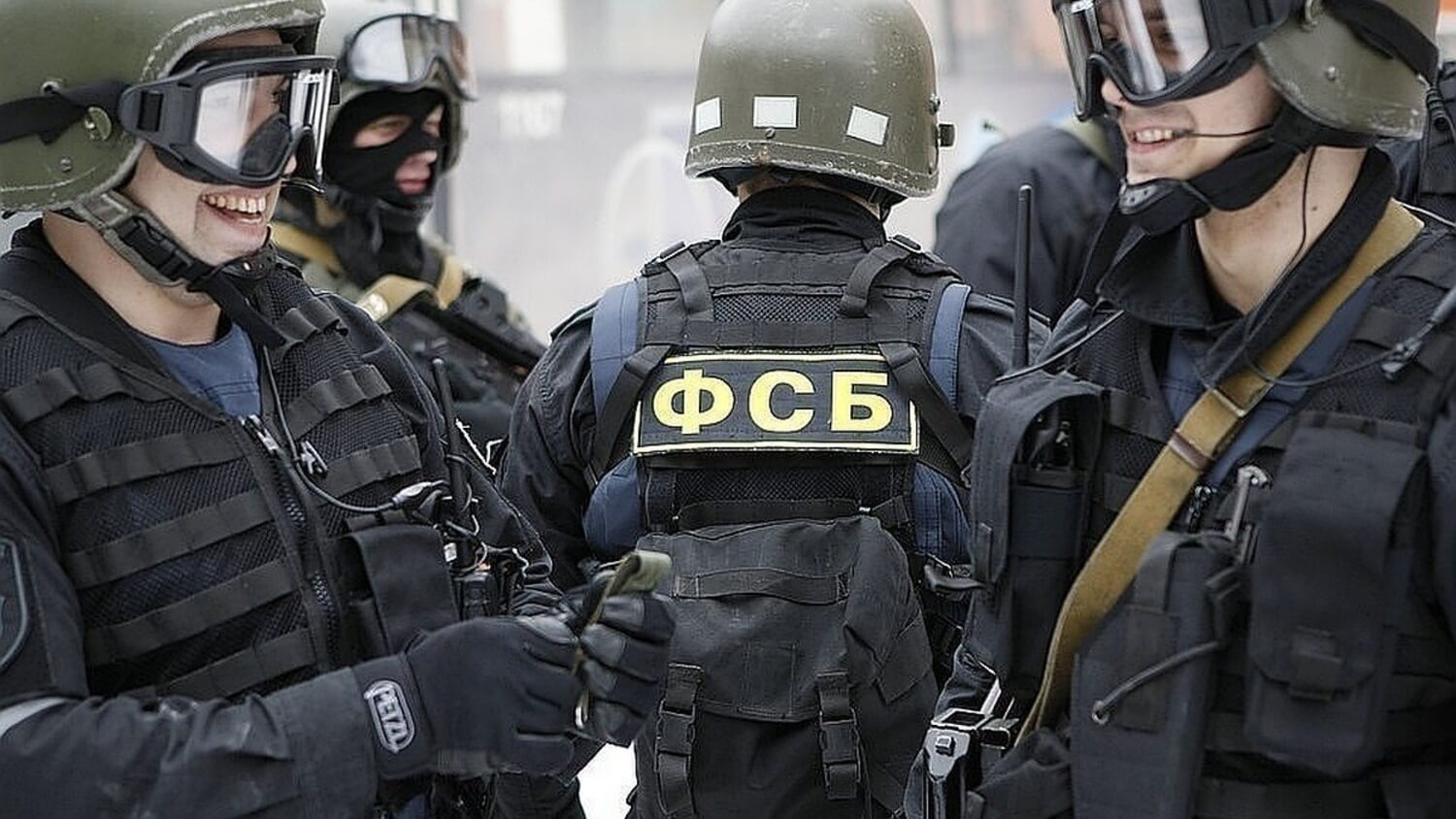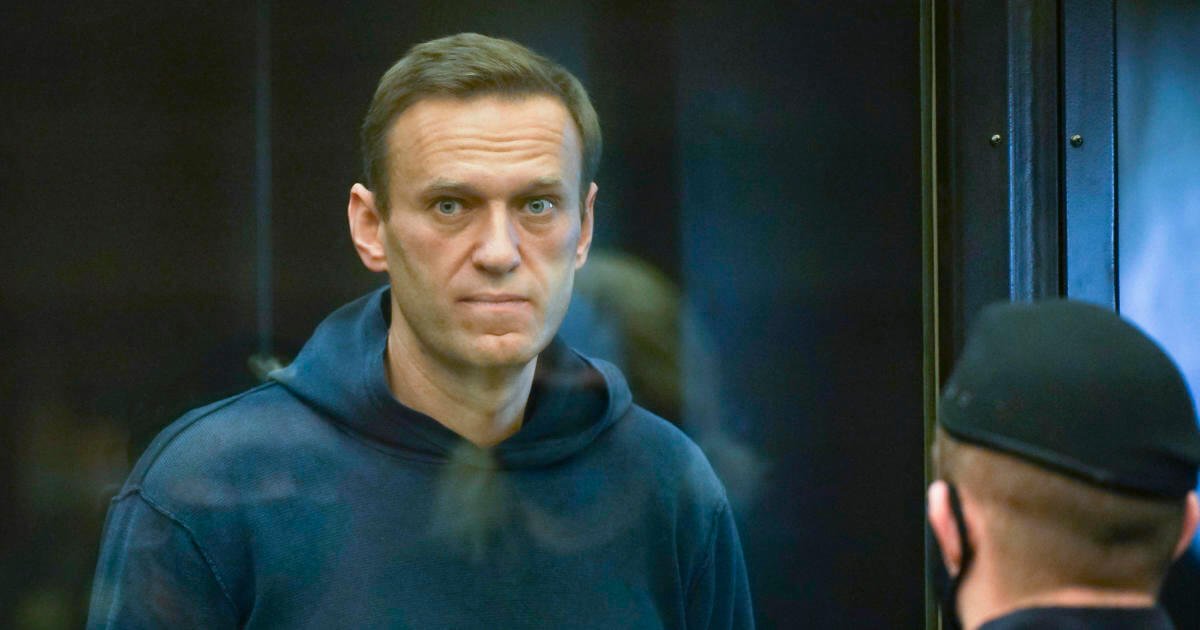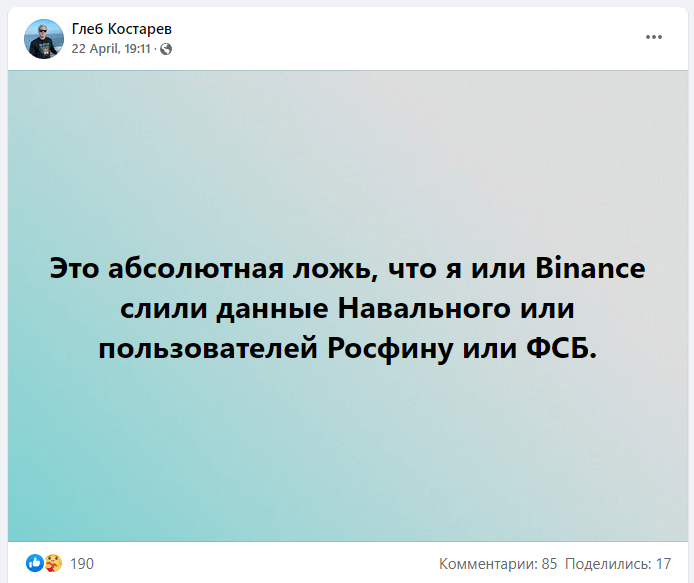Cryptocurrency exchange Binance has been accused of collaborating with the Russian authorities. What did the platform’s representatives say?
Late last week, it was reported online that the largest cryptocurrency exchange, Binance, had allegedly been sharing data of its Russian clients with the Russian security services since April 2021. Representatives of the trading platform hastened to refute the rumors: according to them, Binance has never engaged in such activities and has not cooperated with the Russian Federal Security Service. We tell you more about the situation.

Traditionally, we begin with an explanation. The reason for this was a Reuters article dated 22 April 2022. In it, journalists reported that Binance employees had allegedly agreed to hand over personal data of Russian users to Rosfinmonitoring officials. In doing so, the latter needed the information in order to find people who financed opposition activities in the country, including Alexey Navalny.
According to Reuters, the decision was allegedly taken following a meeting between Binance’s Eastern Europe director Gleb Kostarev and representatives of the agency a year ago, in April 2021. Journalists said that according to Kostarev, “he had little choice”.

Binance exchange logo on Porto’s uniform
The publication of this news was enough to create a negative background around the exchange. Recall that on the previous day, the platform had imposed significant restrictions on Russian residents in accordance with the EU sanctions against the state, so users not only believed the news, but also shared negative sentiments about the platform. However, Binance confidently denies all possible allegations.
Is Binance cooperating with the authorities
The news of Binance’s collaboration with the FSB was published by Reuters news portal, Decrypt representatives report. After that, it quickly went viral in Russian communities on Telegram and Twitter, which predictably prompted a dose of hatred and statements along the lines of “it’s time to look for another platform.” Reuters journalists claimed that Rosfinmonitoring had been “tracking millions of dollars in cryptotransactions that were donated to opposition leader Alexei Navalny.
Binance was quick to deny this information, issuing a statement with the following quote.
Suggestions that Binance has allegedly shared information about its users, including Alexei Navalny, with Russia’s FSB, government agencies or local regulators are categorically false. Prior to the military special operation, Binance’s operations in Russia were no different from those in any other jurisdiction, from banks to simple eateries.

Russian opposition activist Alexei Navalny
Binance representatives claim that the exchange lobbied the Russian government to develop a regulatory framework to regulate cryptocurrencies. It has also pursued similar tactics in the US. Binance has defended the need for regulated exchanges to cooperate with governments.
Today, any government or law enforcement agency in the world can request user data from Binance if accompanied by the appropriate legal authority. Russia is no exception.
However, Binance may not follow government orders and will always prioritise the security and independence of its customers. This does not apply to customers from the Russian Federation - since recently, the exchange has severely limited the available functions for the accounts of Russian users with a balance of more than 10 thousand euros. Now they can only withdraw coins to a third-party cryptocurrency wallet, trading is not available to them.
What is happening is due to new EU sanctions against Russia over the latter's activities in Ukraine.
The Reuters article also reports that Binance’s Eastern European representative, Gleb Kostarev, has agreed to share customer data with Rosfinmonitoring, as well as “some interested parties”, as “he had no particular recourse”. Kostarev himself denies this information in a post on his Facebook page:
It’s an absolute lie that I or Binance leaked Navalny or users’ data to Rosfin or the FSB.
Note that Binance representatives also published correspondence with journalists as evidence, which does confirm the company's position. You can read the details in the original at the link.

Gleb Kostarev’s post with a rebuttal to Reuters’ claims
Alexei Navalny’s cryptocurrency wallet received at least 658 BTC in donations between December 2016 and February 2021. Notably, a huge number of the transactions came after the famous opposition figure was poisoned and after his prison sentence was imposed.

Alexey Navalny’s cryptocurrency wallet for donations
The situation around the world’s perception of the political situation in Russia has escalated greatly since the conflict between Russia and Ukraine. And if at its beginning, Binance refused to comply with the demands of Ukrainian Deputy Prime Minister Mikhail Fedorov to block all Russian IP addresses, now the platform is ready to take more radical steps. And it is unlikely that this trend will change in the near future – other centralized platforms may soon join the sanctions against Russian users.
Changpen Zhao, the founder of the Binance exchange, also reacted to the developments. He said that any accusations of leaking user data in this case were false.
Suggestions that Binance disclosed any user data – including that of Alexey Navalny – to the FSB or Russian regulators are categorically false.
In addition, Chanpen did not forget to mention that Binance is currently the only cryptocurrency platform that complies with the latest EU sanctions package on Russia. We are talking about the already mentioned restriction of RF user accounts with the equivalent of 10 thousand euros. Accordingly, the exchange clearly adheres to the framework of the law and complies with it.
We believe that the Binance exchange has become a reputational hostage of Russian users. After all, it had implemented sanctions the day before, which was viewed negatively by investors. Accordingly, in the current environment, even the publication of such an article from Reuters was enough to worsen the perception of the trading platform - although traders have not had much trouble with it before. We believe that there is no point in being angry at Binance's management in the current situation. Still, any platform will disclose information about any user at the legal request of the authorities - as well as block access to a certain category of users in case of sanctions. The number of restrictions from platforms is likely to become large in the near future.
What do you think about it? Share your opinion in our millionaires cryptochat. Share other news about the world of decentralised assets there.
SUBSCRIBE TO OUR CHANNEL ON TELEGRAM. THERE’S EVEN MORE INTERESTING NEWS HERE.















